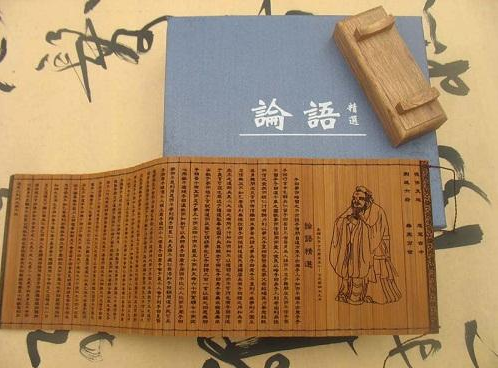Turning to Yen Yu, he said, "Ch'iu, what are your wishes?" Ch'iu replied, "Suppose a state of sixty or seventy li square, or one of fifty or sixty, and let me have the government of it;
“求,爾何如?”對曰:“方六七十,如五六十,求也為之;
in three years'time, I could make plenty to abound among the people. As to teaching them the principles of propriety, and music, I must wait for the rise of a superior man to do that."
比及三年,可使足民。如其禮樂,以俟君子。”
"What are your wishes, Ch'ih," said the Master next to Kung-hsi Hwa. Ch'ih replied, "I do not say that my ability extends to these things, but I should wish to learn them.
“赤!爾何如?”對曰:“非曰能之,愿學(xué)焉。

At the services of the ancestral temple, and at the audiences of the princes with the sovereign, I should like, dressed in the dark square-made robe and the black linen cap, to act as a small assistant."
宗廟之事,如會同,端章甫,愿為小相焉。”
Last of all, the Master asked Tsang Hsi, "Tien, what are your wishes?" Tien, pausing as he was playing on his lute, while it was yet twanging, laid the instrument aside and rose,
“點(diǎn),爾何如?”鼓瑟希,鏗爾,舍瑟而作,
"My wishes," he said, "are different from the cherished purposes of these three gentlemen." "What harm is there in that?" said the Master; "do you also, as well as they, speak out your wishes."
對曰:“異乎三子者之撰。”子曰:“何傷乎?亦各言其志也。”













